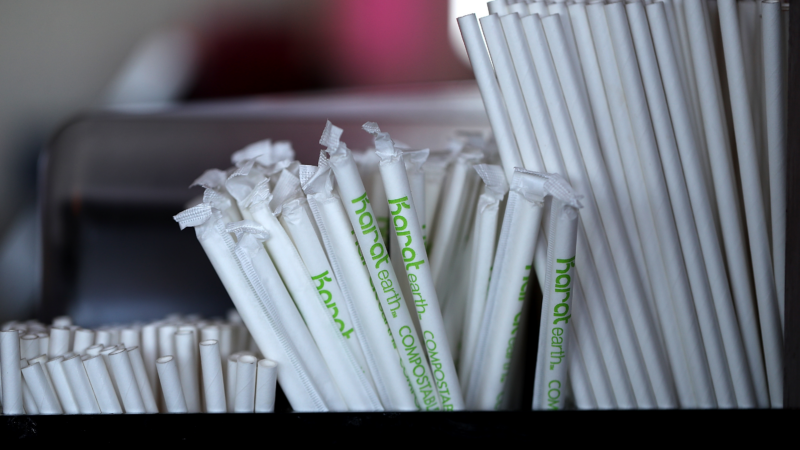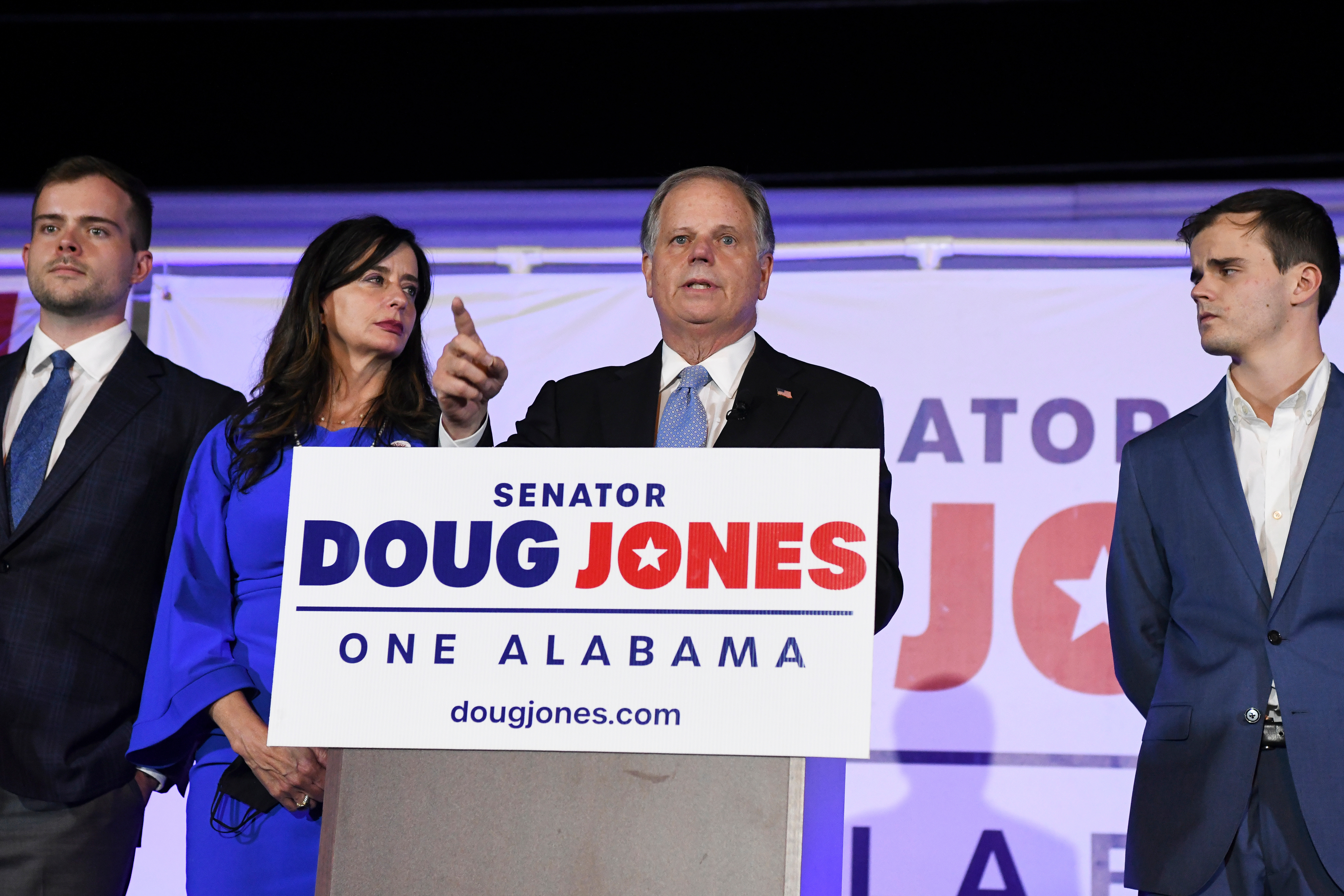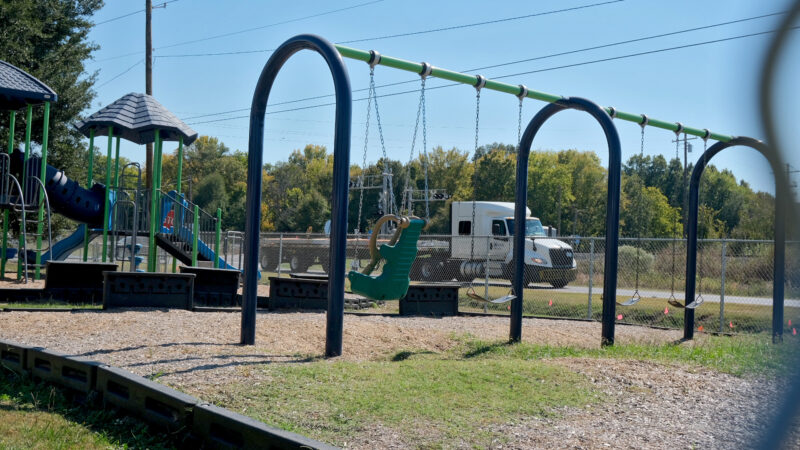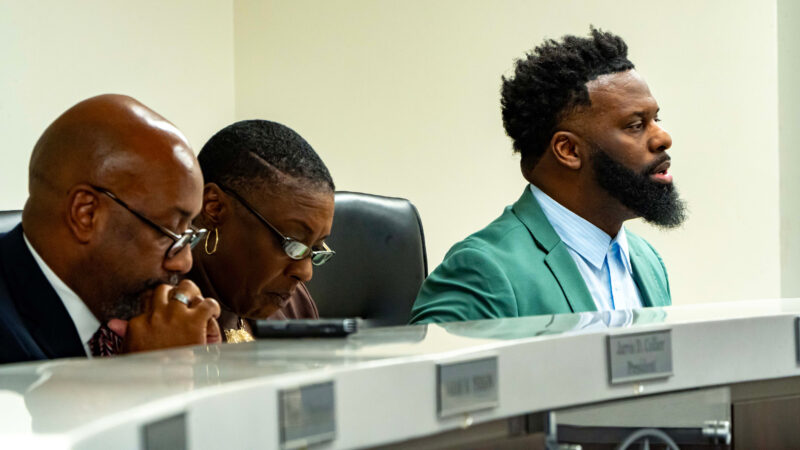Trump says ‘we’re going back to plastic straws.’ Is the paper straw dead?
A decade ago, a video of a sea turtle with a plastic straw stuck in its nostril went viral, spurring a wave of activism aimed at curtailing plastic pollution. The disposable plastic straw became the movement’s poster child. Bans or restrictions on plastic straws were passed in dozens of cities and states.
Backlash followed, and now things seem to have come full circle. President Trump signed an executive order Monday, decrying the “irrational campaign against plastic straws,” and stating that it is “the policy of the United States to end the use of paper straws.”
Where does this leave the movement to cut plastic pollution? Is the paper straw really dead?
“It was never about the straw in particular,” says Jackie Nuñez, founder of the Last Plastic Straw campaign. “It was about single-use plastics, a way to get people to act on it in a simple, tangible way.”
Straws, she says, were a “gateway” issue to get people interested in curbing plastic use. According to one estimate, Americans use, and throw away, as many as a half a billion straws each day.
Nuñez was one of the first people to start advocating for ditching plastic straws, back in 2009. In the early days, pre-turtle video, there were a lot of doubters, even in the world of environmental nonprofits.
“What I found was, even the bad press was good press,” Nuñez says. When people were bashing her anti-plastic-straw crusade, she saw it as an opportunity to talk about the growing problem of single-use plastics.
During a televised signing ceremony Trump railed against paper straws — adopted in recent years as a biodegradable alternative to plastic ones.
“These things don’t work. I’ve had them many times, and on occasion, they break, they explode,” Trump said. “If something’s hot, they don’t last very long, like a matter of minutes, sometimes a matter of seconds. It’s a ridiculous situation.”
Nuñes admits the movement against plastic straws may be over, in terms of being an issue to galvanize the public. But she says efforts to move away from plastic straws did have a lasting impact.
“You can’t undo what you’ve learned, you can’t unsee what you’ve seen. That’s the one thing that I think the plastic straw did. It just really kind of opened up that awareness about single-use plastics,” Nuñez says.
More recently, the movement to reduce single-use plastic has focused less on wildlife (sorry sea-turtles), and more on the negative impact plastics can have on human health, citing a growing body of scientific research.
A study published this month found that human brain samples contained a whole spoon’s worth of tiny nanoparticles. Earlier research found plastic particles in human lungs and in mens’ testicles. One study from last year found nearly a quarter-million plastic particles in a typical liter of bottled water.
Trump’s executive order directs federal agencies to stop purchasing paper straws, making sure they are not provided in government buildings. It also calls for a “National Strategy to End the Use of Paper Straws” to be produced within 45 days.
Though the executive order aims to “alleviate the forced use of paper straws nationwide,” according to a White House fact sheet, plastic straw bans and restrictions will remain in effect in cities and states across the country.
More than a half dozen states have laws stating that restaurants and bars can only provide plastic straws if customers request them. This includes New York, California, Oregon, Washington, New Jersey, Delaware and Rhode Island. Dozens of cities and counties also have restrictions in place — some, including Washington, D.C., ban businesses from providing plastic straws, even if the customer asks for one.
Trump’s action rolls back steps taken by the Biden administration to cut plastic pollution. Last year, Biden pledged to start phasing out the federal government’s purchasing of plastic straws and other single-use plastics starting in 2027.
Alabama Power seeks to delay rate hike for new gas plant amid outcry
The state’s largest utility has proposed delaying the rate increase from its purchase of a $622 million natural gas plant until 2028.
Former U.S. Sen. Doug Jones announces run for Alabama governor
Jones announced his campaign Monday afternoon, hours after filing campaign paperwork with the Secretary of State's Office. His gubernatorial bid could set up a rematch with U.S. Sen. Tommy Tuberville, the Republican who defeated Jones in 2020 and is now running for governor.
Scorching Saturdays: The rising heat threat inside football stadiums
Excessive heat and more frequent medical incidents in Southern college football stadiums could be a warning sign for universities across the country.
Judge orders new Alabama Senate map after ruling found racial gerrymandering
U.S. District Judge Anna Manasco, appointed by President Donald Trump during his first term, issued the ruling Monday putting a new court-selected map in place for the 2026 and 2030 elections.
Construction on Meta’s largest data center brings 600% crash spike, chaos to rural Louisiana
An investigation from the Gulf States Newsroom found that trucks contracted to work at the Meta facility are causing delays and dangerous roads in Holly Ridge.
Bessemer City Council approves rezoning for a massive data center, dividing a community
After the Bessemer City Council voted 5-2 to rezone nearly 700 acres of agricultural land for the “hyperscale” server farm, a dissenting council member said city officials who signed non-disclosure agreements weren’t being transparent with citizens.









